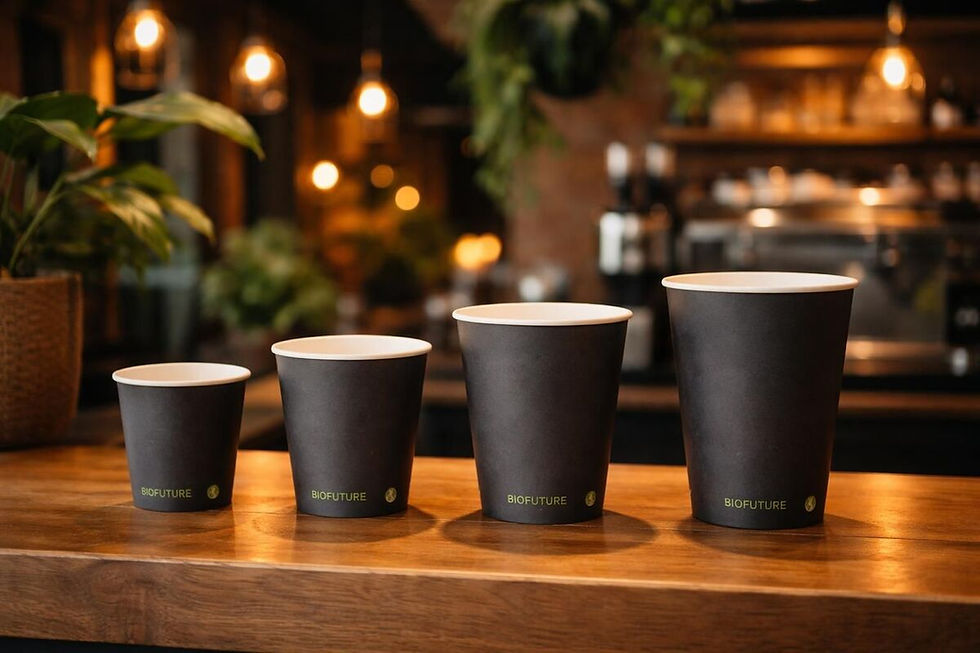Transitioning to a Zero-Waste Lifestyle with Compostable Packaging
- Biofuture

- May 16, 2025
- 2 min read
In a world increasingly plagued by plastic pollution, adopting a zero-waste lifestyle has gone from a niche trend to a mainstream goal. One major culprit in plastic waste is packaging - in fact, nearly 42% of global plastic waste comes from packaging materials. This is where compostable packaging steps in as a game-changer. By switching to packaging made from plant-based, compostable materials, individuals and businesses can dramatically reduce landfill waste and support a more sustainable, circular economy.

What Does "Zero-Waste" Mean? (And Why It Matters)
At its core, a zero-waste lifestyle means striving to send nothing to landfill - instead, all products are reused, recycled or composted, so that no trash ends up as pollution. It's an ambitious goal, but it starts with simple steps: Refuse what you don't need, Reduce what you use, Reuse as much as possible, Recycle what can't be reused, and Rot (compost) organic materials.
What is Compostable Packaging?
Compostable packaging refers to materials (often made from plant-based fibres or bioplastics) that can break down into natural compost under the right conditions. Unlike traditional plastics, which persist for centuries, compostable packaging is designed to decompose into soil within weeks or months in a composting environment, leaving behind no toxic residue. Compostable products return nutrients to the soil without creating new waste.
Why Compostable Packaging Matters for a Zero-Waste Lifestyle
Reduces Plastic Pollution: Every compostable container or wrapper used is one less plastic item that could end up as litter or ocean pollution.
Cuts Landfill Waste & Emissions: Organic waste in landfills produces methane, a potent greenhouse gas. Composting reduces this.
Supports a Circular Economy: Compostable packaging returns nutrients to the soil, closing the loop on waste.
No Toxic Residue or Microplastics: Certified compostable materials break down cleanly.
Consumer Preference: A growing number of people seek eco-friendly products, creating demand and momentum.
Tips for Transitioning to a Zero-Waste Lifestyle Using Compostable Solutions
Audit Your Waste: Identify what you throw away most and find sustainable swaps.
Swap Smart: Replace cling film, plastic bin liners, and resealable bags with compostable alternatives. Our guide on eco-friendly kitchen swaps can help you get started with practical alternatives.
Start Composting: Begin composting your organic waste and compostable packaging. Not sure where to begin? Check out our guide on how to compost kitchen waste.
Shop Mindfully: Choose products with minimal or compostable packaging.
Reuse Before Recycling: Extend the life of packaging and containers.
Educate Others: Share your journey and help normalise sustainable living.
Embrace Progress Over Perfection
Transitioning to zero-waste is a journey, not a destination. Even small swaps like using compostable cling film or bin liners can add up to a big impact. Celebrate progress and continue to make sustainable choices that are better for the planet. Companies like Bio-Future make it easier than ever to switch to compostable, low-emission alternatives that align with a zero-waste lifestyle.
At Bio-Future, we make it easier than ever to take that next step - explore our shop for compostable, low-emission alternatives that support your zero-waste lifestyle.




Comments